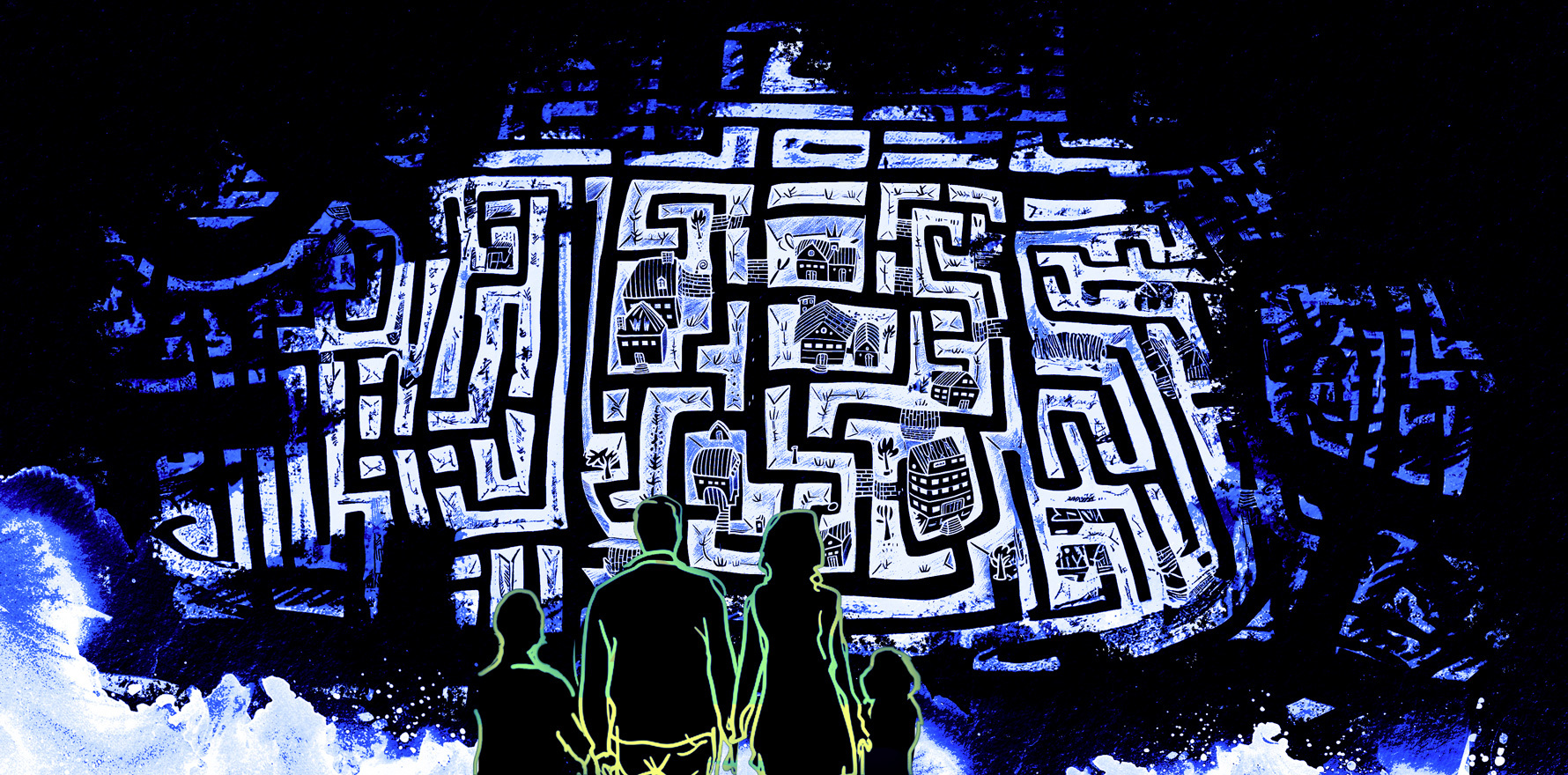Especially with younger onset, it takes years to navigate to a safe harbour. There’s no reason for it to be like this.
Luke Campbell’s wife Lisa was 43 years old when her family started noticing behaviours that would lead, eventually, to her diagnosis of younger onset dementia.
Today Lisa is in the best place she can be, living with 24/7 care in an apartment near Luke and their three now teenage children, seeing at least one of them daily; she has a safe, varied, non-institutional life close to her family.
But the eight-year journey to that place was harrowing and would probably have been unachievable without Luke’s resolve to navigate a disability care system that, for people living with younger onset dementia (YOD) and their families, is complex and unresponsive.
That system put Lisa into an aged care home where, if Luke hadn’t devoted all his efforts to getting her out, she’d probably still be now, isolated and distressed, living among people 20-30 years older, and most likely with her behaviours managed by psychotropic drugs.
Luke is telling Lisa’s story to doctors and dementia care specialists, because he sees a system still not coping with younger onset dementia – though it has improved recently – and still burdening families and carers with its failures.
He will be a speaker and a panellist at the International Dementia Conference, run by The Dementia Centre, in Sydney on 5 and 6 September.
“For me it’s becoming more and more clear that the starting point is with GPs, their understanding of the condition and awareness to guide people directly to the right services for them,” says Luke.
It took four years of consultations for Lisa’s diagnosis to come and by then her condition was deteriorating towards the point where she couldn’t live at home.
“With dementia in the house, it wasn’t appropriate or sustainable for the kids or for Lisa,” Luke said.
But the only truly unusual aspect of the Campbell family’s encounter with younger onset dementia was Lisa’s very young age at diagnosis.
Steph Daly, an Adelaide GP who takes a specialist interest in dementia as a consultant, trainer and advocate, says although she has seen people in their late 40s with dementia, it is rare, and most people diagnosed with younger onset have been in their late 50s or early 60s. Those over 65 are no longer classified as younger onset.
An estimated 28,900 Australians were living with YOD in 2023 and the number is projected to grow to 42,400 over 25 years. However, it is far from settled whether YOD is increasingly prevalent or whether the recent numbers reflect better diagnostic methods.
The time it took to get Lisa’s diagnosis also was not uncommon, says Dr Daly. The mean average for YOD diagnosis is 4.4 years and for over-65 onset it is 2.2 years.
Identifying dementia can be a challenge as other conditions can co-exist such as mental health conditions, and differentiating this from symptoms of dementia in mid-life is difficult for GPs and specialists. Many people see several specialists before the diagnosis is made.
Related
But Dr Daly agrees that better recognition by GPs of the possibility of YOD and the capability to guide families forward after diagnosis is critical.
“The first thing I would say (to GPs) is, if you see cognition difficulties don’t rule out dementia, based on someone’s age. Consider the possibility and take concerns seriously.
“And secondly, after a diagnosis, don’t assume it’s now all in the hands of specialists. I think, as a GP, one of our roles is to help bring in support services.”
What is also needed, and what the National Disability Insurance Scheme and aged care services should provide, says Dr Daly, is care navigators – properly trained and credentialled professionals who, from diagnosis, can guide families towards the forms of care and the services they will need.
That was not Luke’s experience. He and Lisa left the diagnostic clinic with “a whole bunch of pamphlets” but no treatment plan, not even a contact list to help find the various specialist care providers.
By the time of Lisa’s diagnosis, Luke had already left his fulltime position in banking. Eventually he also had to curtail his role as a consultant to become the family’s principal carer.
The first three NDIS support coordinators Luke found “were further behind than I was” in understanding Lisa’s needs. There was a similar turnover, for similar reasons, of GPs and occupational therapists.
After Lisa was hospitalised during Melbourne’s covid lockdowns, she was consigned to an aged care home, though a royal commission had already recommended – and the federal government has since adopted as policy – that nobody aged under 65 should be placed in residential aged care.
Only when Luke found a support coordinator and an occupational therapist who were knowledgeable about specialist services available for Lisa were they able to get her out of aged care.
She went into specialised disability accommodation, first about 30 minutes’ travel from the Campbells’ home, then earlier this year into an apartment only 500m away.
But every bit of the process was hard, including finding any suitable accommodation.
“It’s why I am passionate about finding the connecting point between diagnosis and service enablement,” says Luke, who is now studying for a degree in health sciences.
“That and finding the right living conditions, if it has to be out of the home, which in our circumstances is what it came to quite quickly.
“There’s still this huge time and process people have to go through and that is not days, it’s months and years, and there is no reason for it, other than administration and process that doesn’t need to be there.”
Luke points out there is a settled “fast pathway” through the NDIS system for people with motor neurone disease, from diagnosis to service enablement, which should be adopted and adapted to younger onset dementia and other conditions.
Angela Raguz is a registered nurse and the general manager of HammondCare Residential Care and Dementia Centre. She will also be speaking at the International Dementia Conference, a biennial event bringing together experts, practitioners and people with lived experience to discuss the latest insights and developments in complex dementia treatment, palliative care and positive ageing.




